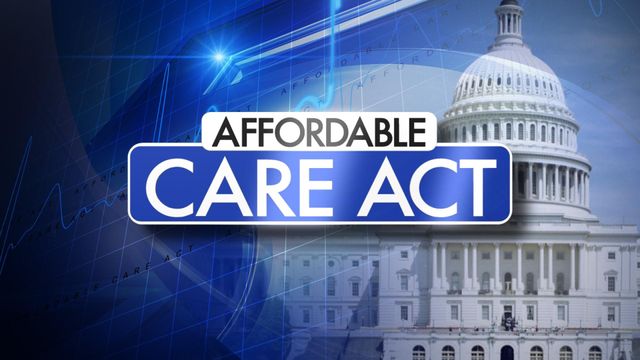Cost-cutting move may mean fewer agents recommend UnitedHealth plans on insurance marketplace
Insurance agents say a surprise move by the nation's largest health insurer could force them to stop selling the plans the company offers through the online marketplaces of the Affordable Care Act.
Posted — UpdatedAs of Jan. 1, UnitedHealth will no longer pay agents commission for plans they sell from HealthCare.gov or any state exchange. UnitedHealth is one of three insurers – Blue Shield of North Carolina and Coventry Health Care of the Carolinas are the others – to offer marketplace plans in North Carolina.
UnitedHealth officials last week said they made a mistake in expanding rapidly into exchange plans, and the company recently lowered its 2015 earnings forecasts, blaming a spike in costs from such plans.
The decision to end commissions on exchange plans is "consistent with our long-stated approach to continually evaluate the dynamics of exchanges as they evolve and adjust ... accordingly," the company said in a statement.
Although people don't need an agent to enroll in health coverage under the federal law, an agent can make the process of comparing the costs and benefits of various plans easier.
Agents said that, without an incentive to steer people to a UnitedHealth plan, they might not even discuss those plans with people seeking coverage under the Affordable Care Act.
"While we want to provide the right solutions, I feel like we're losing a degree of objectivity," said Rob Ferguson, an agent with Absolute Insurance Solutions. "It may be a less expensive plan – and that's what you're ultimately looking for – as an agent, I'm going make you aware of it, but I'm not going to facilitate that process through the marketplace because I'm really not getting paid for my time."
UnitedHealth's solution isn't popular, but the company isn't alone in its struggle to dig out of a financial hole associated with the Affordable Care Act.
Blue Cross ended 2014 with a $50 million loss, largely due to soaring costs from its exchange plans. The state's largest insurer pointed to continued escalation in the demand for medical services and the large number of policyholders with chronic health conditions.
Instead of cutting its losses, Blue Cross is taking a different tack, actively recruiting across the state to build a larger pool of customers to spread its costs.
"To make this work and make it balance out, we need to make sure everyone is in there," said Alex Hoffman, sales manager for Blue Cross. "We can't just have those that need it most signing up and those that are still of the opinion that they don't need insurance staying on the sidelines."
• Credits
Copyright 2024 by Capitol Broadcasting Company. All rights reserved. This material may not be published, broadcast, rewritten or redistributed.






